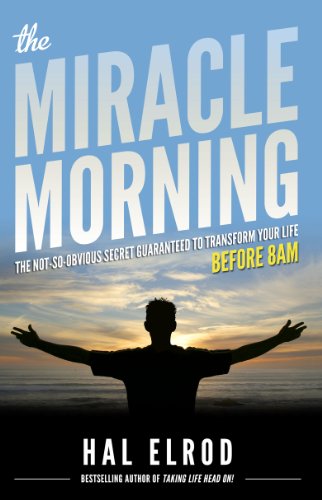Waking up in the early morning as opposed to sleeping in late comes with several benefits. However, while some people are born as morning people and find waking up with the sunrise to be second nature, others struggle with waking up early.
The good news, though, is that you can go about adjusting your sleep schedule and transforming yourself into the morning person you’ve always dreamed of becoming. In this article, we’ll explore seven simple tips for waking up early that you can use to change your sleep schedule and life.
Start Gradually
If you are used to waking up at 10:00 AM and would like to start waking up at 7:00 AM instead, eventually, there’s no reason to try and make this three-hour leap on night one. Adjusting your sleep schedule so dramatically – while undoubtedly possible – is not easy, and you are sure to wake up tired and wishing you could go back to sleep.
Rather than trying to change your sleep schedule all at once, it is much easier to change it gradually instead. For instance, using our last example, you may set the alarm for 9:45 AM the first week then move it back to 9:30 AM the next week, 9:15 AM the week after that, and so on. In almost all cases, you will gradually adjust your sleep schedule in this manner, which is much easier than trying to make the leap all at once.

The Miracle Morning
by Hal Elrod
⏱ 12 minute reading time
🎧 Audio version available
Rely on Caffeine… at Least in the beginning
Caffeine is like rocket fuel for morning people. If you are in the process of adjusting your sleep schedule and are finding that you are still tired and groggy when you wake up in the morning, a cup of coffee or an energy drink can go a long ways toward helping you clear your mental fog and kick your body into gear.
Of course, drinks that are high in caffeine aren’t exactly the healthiest things in the world. While a cup of coffee now and then certainly isn’t going to hurt you, starting up a full-blown caffeine addiction when you don’t already have one in response to trying to wake up earlier may be replacing one bad habit with another.
Perhaps the best advice is to rely on caffeine in the beginning when you are still adjusting your sleep schedule, and waking up early is difficult. Then, once you start becoming used to the new schedule and the mornings aren’t quite as challenging, ease back on your caffeine use.
Make Your Bed Each Morning
US Navy Admiral William H. McRaven said, “If you want to change the world, start by making your bed.” The same can be said for those who want to start waking up earlier.
There are several different ways that making your bed first thing each morning can help you become an early riser. To start, throwing yourself into a task as soon as you wake up allows you to start each day with a productive and active routine that will get your blood flowing and set the right tone for the rest of the day.
Second, making your bed in the morning means that it will be less tempting to crawl back into it and go back to sleep since doing so would mean undoing the work you just completed. Best of all, after a hard day’s work of being a successful and productive morning person, you can take comfort in knowing that a nicely made bed is waiting for you when you return home, and it is time to rest.
Related: Morning Routine Checklist: Simple Routines for an Amazing Day
Take a Cold Shower
If you’re like most people, taking a shower with the water turned down to its coldest setting may sound like a form of cruel and unusual punishment that should be outlawed across the world. However, as uncomfortable as it might sound, cold showers offer a surprising range of health benefits – including helping you clear any mental fog that might be leftover from waking up earlier than you are used to.
When you suddenly turn the water in your shower down to cold, it is understandably a shock to your body. But this shock to your body causes it to release adrenaline, which will wake you up and clear your grogginess faster than anything else could hope to do so.
Besides giving you a jolt of adrenaline to start your day, cold showers offer many other benefits, from improving your skin health to promoting stronger, healthier hair to increasing your circulation.
For most people, taking a shower on the coldest setting is simply going to be too miserable to be feasible. Instead, try starting with a normal, warm shower then turning the water down to cold for thirty seconds (or as long as you can stand it) before turning it back to warm again. Allow your body to recover from the shock, then repeat this process. Over time, you may find that you get used to the cold and can endure more extended periods of cold water.
Keep the Same Schedule on the Weekends
If you want to adjust your sleep schedule so that you start waking up earlier, it is essential to keep the same schedule on the weekends that you do throughout the week.
The temptation to sleep in on the weekends is certainly understandable if you’ve been waking up early. After all, the weekend is a time for relaxation. However, even two days of disrupting your new schedule can be enough to reset your progress. If you are committed to becoming an early riser, you’ll need to be an early riser on the weekends.
Eat a Healthy Breakfast
Caffeine isn’t the only food-based fuel that you can use to help you adjust to becoming a morning person – a healthy breakfast can go a long way toward boosting your energy, mood, and mental clarity.
When you start the morning with a healthy breakfast that includes grains, fruits, and protein, you give your body the nutrients it needs to power through the morning and the rest of the day. Starting the day on an empty stomach, by contrast, is going to be much more difficult and much less enjoyable, while starting the day with an unhealthy breakfast such as a donut or sugary cereal isn’t going to be much better.
Instead, take the time to prepare a healthy breakfast in the morning, even if it is something simple like a bowl of oatmeal and an apple. If you start each day by giving your body healthy fuel, you are sure to notice the benefits in little time.
Related: 7 Timeless Morning Routine Hacks To Boost Productivity
Avoid Hitting the Snooze Button
Many people consider the snooze button on their alarm a way to wake up more gradually rather than having to come awake all at once. In reality, though, hitting the snooze button tends to do more harm than good.
When you fall into a consistent sleep schedule, your body knows when it is supposed to wake up in the morning and begin waking up an hour and a half before you wake up. When you hit the snooze button on your alarm multiple times in the morning, though, it confuses this process.
Your body doesn’t know when it is supposed to wake up since it is waking up and going back to sleep multiple times each morning on an inconsistent schedule. The result of hitting the snooze button and confusing your body’s wake/sleep cycle is that you aren’t prepared to wake up when it is time to get up for real, meaning that you will feel less rested and more groggy.
Instead of hitting the snooze button, set your alarm for when you legitimately want to rise at once when it goes off. This will allow your body to adjust to the new routine and begin the process of waking you up each morning on a regular and consistent basis.
Wrapping it up
Ben Franklin once said, “Early to bed and early to rise, makes a man healthy, wealthy, and wise.” While there may be more required to attaining wealth, health, and wisdom than simply waking up early in the morning, beginning each day when the sun rises is undoubtedly a good start.
For those among us who find waking up early in the morning to be a struggle rather than something that comes naturally, it is crucial to develop a plan to help you gradually ease into becoming an early riser.
Following the tips outlined above, you should be well on your way to creating a new, more productive sleep schedule that enables you to take full advantage of all the benefits that waking up early in the morning has to offer.
Start Your Snapreads Free Trial

With the Snapreads app, you get the key insights from the best nonfiction books in minutes, not hours or days. Our experts transform these books into quick, memorable, easy-to-understand insights you can read when you have the time or listen to them on the go.


